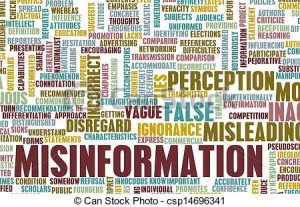Twice now this week we’ve heard Jesus command: “Be quiet.” This morning it was “Quiet, be still!” in order to calm a storm. Now here in this story from Mark it’s “Quiet, come out!” to chase an unclean spirit and cure a young man besieged by demons that today might be labeled PSTD, Schizophrenia, Bipolar illness …
Demons are so disruptive. The victims long for control over the evil spirit that seems to pull the strings, think the thoughts, speak the words and do the deeds.
In this story, apparently no one in town suspected that the young man had an evil spirit. Otherwise, they would have been shunned him. They wouldn’t have allowed him in their company, in the temple or anywhere near Jesus.
Well, I got this far in my reflection (Sister Roberta Bailey, OSB, Prioress)– pondering the variety of demons our society struggles with today. Then I got distracted and stymied – I felt like an evil spirit, some might call, writer’s block, was redirecting my thoughts, interfering with my schedule, trying to inflict me with laryngitis or lull me into a nap.
When lo and behold, Jesus said, “Quiet – here’s a reflection already written for you. It was a blog piece from Stephen Okey professor from SLU who did a presentation for us (here at the monastery) on one of the most insidious demons that invades us most anywhere we turn. In Stephan’s words:
Although the term “fake news” may be of relatively recent invention, Pope Francis argues that it begins already in the Garden of Eden. In an insightful exegesis of Genesis 3, he describes the serpent as the first purveyor of fake news, who relies on “mimicry” and the “appearance of truth.” The serpent is able to take something true, given in love (the command against eating the fruit of the tree of knowledge of good and evil), and twist and discredit the claim through selective reframing and presentation. The same problem continues today, as individuals, networks, and even governmental agencies create attractive and credible lies in order to generate traffic, generate revenue, and generate division.
Francis defines “fake news” as “the spreading of disinformation on line or in the traditional media. It has to do with false information based on non-existent or distorted data meant to deceive and manipulate the reader.” He calls for resistance to fake news, to recalling Christ as The Truth on which we can rely, and to learning to discern the true from the false in order to be free. Pope Francis has three concrete suggestions for resisting fake news, along with one deeper exhortation.
First, avoid “homogeneous digital environments impervious to differing perspectives and opinions.” Francis wants us out of our “echo chambers,” meeting with those whom we do not already encounter. This goes beyond cultivating a diversity of sources for media; it means cultivating a diversity of relationships. If one can avoid living in such a “bubble,” one should be less susceptible to stories that simply confirm one’s worst fears.
Second, slow down. One of the dangers of fake news is its “spreading so fast that it is hard to stop.” Journalists in particular are encouraged not to chase the breaking, sensational headlines, but rather the “underlying causes of conflicts” in pursuit of richer and deeper understanding. This is not only journalists though: many of us would benefit from taking a moment to read an article or story before reposting, understanding it beyond its headline, and reflecting on whether or not it is credible. Discernment of the truth takes time.
Third, communicate the truth in love. Francis focuses much of this message on “the true” in contrast to fake news, but he connects it also to “the good.” He encourages us to consider the fruits of our communication. If we “provoke quarrels” or “foment division” rather than “promote informed and mature reflection,” then that communication falls short. Put another way: the repetition of true facts is a necessary condition of communicating the truth, but not a sufficient one.
Finally, an exhortation: strategies are valuable, but they aren’t the whole story. The three practices listed above must be part of a conversion of heart. If cultivating a diverse body of sources and relationships simply becomes pretty window dressing for the bubble one remains in, then it bears no good fruit. It is similar to his claim in Laudato Si: if we rely simply on technological or strategic solutions to our problems, we mask the underlying moral problems that contribute to the throwaway culture (or to continue to promote fake news).
“Fake news” is a new term for an old reality. There is a temptation to deceive, to deceive others, to deceive ourselves, and to deceptively accuse others of deception whenever we don’t want to hear the truth. But we need to hear the truth, and we need to keep our eyes focused on the truth, because it is the truth that will set us free.
Stephen Okey | January 24, 2018
First Reading Deuteronomy 18:15-20 Second Reading 1 Corinthians 7:32-35
Gospel Reading Mark 1:21-28



Leave a Reply